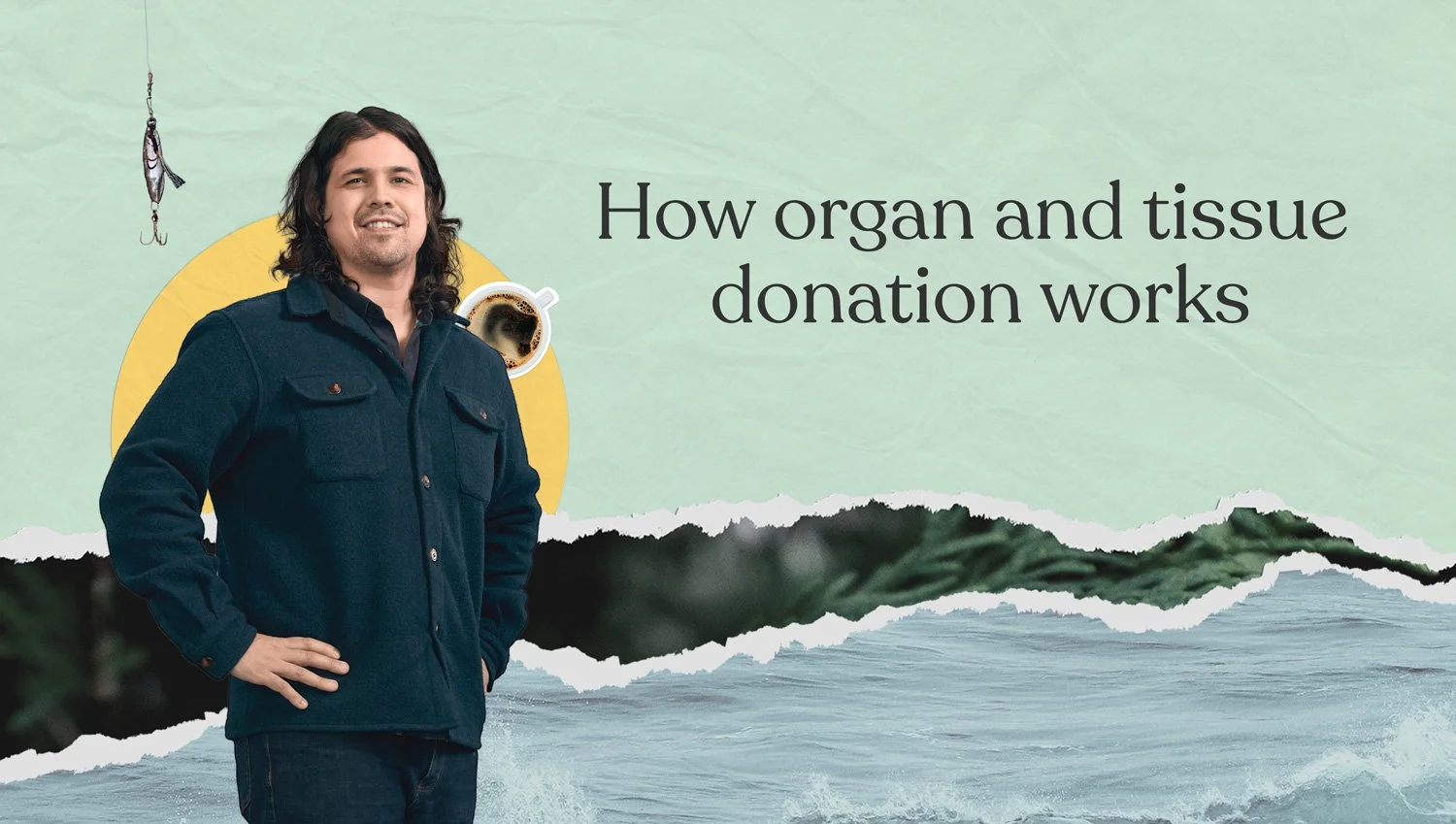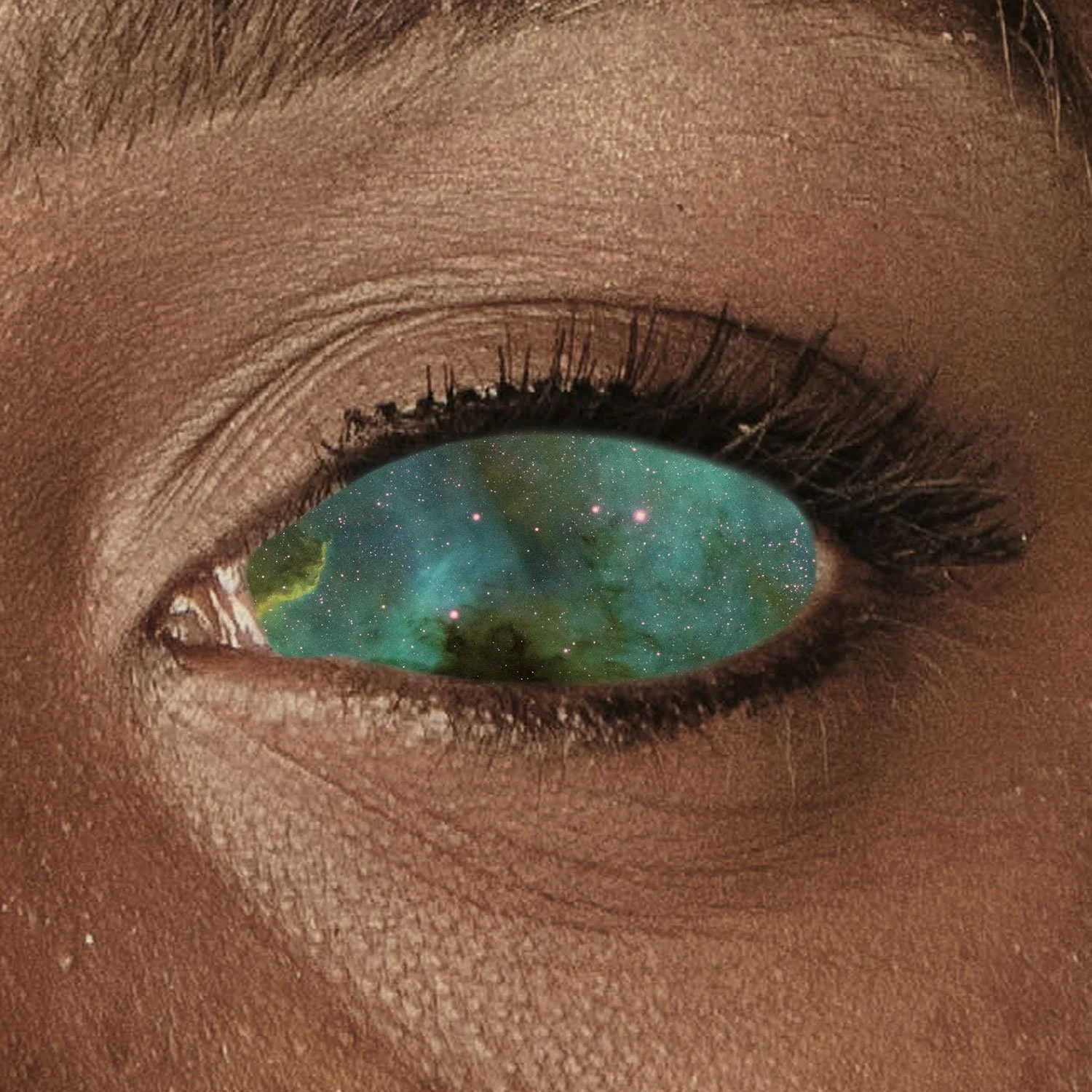Leave well so others can live well
Register to be an organ and tissue donor
Registering to become an organ and tissue donor is a quick and easy thing to do. Just a few checkboxes, a signature, and a few minutes of your time, and you’re officially the kind of human who saves lives.
Register in your province today
-

“I’m registered to be an organ donor because it’s the right thing to do.”
Tammie
Revelstoke, BC -

“I chose to sign up as an organ donor because it is the most selfless and the simplest thing that you can do to save the lives of so many people.”
Jackie
Winnipeg, MB -

“My daughter received a heart transplant in 2006. She received the gift of life. Being a registered organ donor is even more meaningful to me because of this.”
Jane
Kamloops, BC -

“Organ donation enables me to give another person a chance to live an enhanced life.”
Alia
Winnipeg, MB -

“I want to help people and support humanity, even after my death. So I registered myself as an organ donor.”
Lily
Surrey, BC -

“I registered to become an organ donor because seven years ago my grandmother needed a double lung transplant.”
Rio
wINNIPEG, MB
What actually happens when you choose to register as an organ donor?
Not all people who are registered organ and tissue donors actually become organ donors at the end of their lives. In fact, very few do. Only 1-2% of people who die can be considered for organ and tissue donation. That’s because people have to die in a very specific way for organ donation to be an option.
The more registered organ and tissue donors there are, the more chances there are to save and improve lives. There are 4000+ Canadians on the organ waitlist. There are thousands more waiting for a life-improving tissue donation. This is why registration matters so deeply.
Tell the people you love that you intend to leave well.
It can be difficult to talk about dying while you’re still living. But talking about your decision to register to become an organ and tissue donor is extremely important. Your loved ones must give consent to honour your wishes at the end of your life; if you’ve already talked about it, it’s easier for them to do the right thing.
Don’t know where to start? Here are a few ideas:
Prepare a few thoughts in advance—why organ donation matters to you, why their support of your decision is important, important facts, etc. Plan a day to meet at home or for coffee and speak from the heart. “I registered to become an organ donor today and here’s why…”
Send a note to the family group chat: “I registered as an organ donor today! It’s really important to me. Are any of you organ donors? Let’s chat about it at Family Dinner next week I’d love to know your thoughts.”
Start a movement. Encourage learning: “If you learn more and make a decision about donation, I will <insert great thing you will do here.>”
FEATURED POST
FEATURED POST
90% of Canadians say they support organ donation
Only 32% are actually registered as organ donors
We’re on a mission to get as many Canadians registered—and talking about organ donation—as possible
FAQ
FAQ
Common questions about organ and tissue donation
-
Absolutely. When you are admitted to any hospital, priority one is always to save your life. Organ and tissue donation is only considered after all efforts to save your life have failed and it is certain that you will not survive.
-
Any one at any age can donate. In fact, Canada’s oldest organ donor was 92, and oldest tissue donor was 104.
From infant (with parental consent) to 100+. Viable organs are viable organs or tissues regardless of your age. If you don’t need them anymore and you’re a registered organ donor and your organs have been evaluated and deemed healthy for donation, they can be donated.
-
Yes! A medical condition or serious illness does not exclude you as a potential organ donor. All potential donors are evaluated on an individual, medical, case-by-case basis when the time comes.
-
Most religions support organ and tissue donation as an act of life saving. If you are unsure, talk to your spiritual advisor. It’s important that you feel aligned with your decision, whatever it may be.
-
If you are a registered organ donor, this applies to donation after death only. Living donations require a thorough application process. Living donation options include donation of a kidney, part of the liver or part of a lung. Learn more.
-
They can, yes. That’s why it’s important to have a conversation with your loved ones about your decision to become an organ donor. Donation happens at a time of tragedy. It’s an incredibly emotional time for your family, and they will be asked to provide consent that they have been informed of your decision and agree with it. If they’ve had a conversation with you, it’s easier for them to honour your wishes in this difficult time.
-
Sometimes, depending on the province you are registered to be an organ and tissue donor in, the entire eye is recovered and sometimes just the cornea (so not the entire eye). Eye donation includes two parts of the eye: the cornea (that clear front part of the eye, which does not require removing the eye) and the sclera (the white part of the eye, which does require the removal of the entire eye).
-
It’s the donation of your cornea(s), the clear part on the front of the eye, and/or the sclera, the white part of your eyes. A cornea transplant can restore sight to those who are blind. The sclera can help patch grafts in glaucoma surgery, reconstruct orbital areas, attach prosthetic eyes, and reconstruct eyelids. It all feels pretty miraculous.
-
Yes you can. Your eyesight can be poor and your corneas can still be healthy. This is possible because many visual conditions that contribute to poor eyesight do not directly affect the cornea itself. You can still be an eye donor if you:
Wear glasses
Have cataracts or have had cataract surgery
Have diabetes
Have glaucoma
Have had laser corrective surgery
Are blind
If you agree to donate your eyes when you register to be an organ and tissue donor, your eye tissue will be recovered and analyzed to make sure it’s healthy for transplant.
-
No. The iris (the coloured part of your eye) is never recovered. A whole eye is never transplanted. Many people think that donating their eyes means, like in organ donation, that another human gets their eyes. This isn’t the case. With eye donation, the cornea and/or sclera can be donated only.
-
Yes. If you donate eye(s), whether cornea or sclera or both, the physicians recover the eye tissue respectfully and carefully. They also insert plastic eye caps—the same as funeral homes do for every person whether they donate their eye tissue or not—to preserve the normal, rounded contour of the eye and hold the eyelid closed. A person who has donated eye tissue looks the same in a casket as a person who has not donated—like they’re sleeping.
If you have donated tissue, the removal surgery is intentional and respectful as well. Surgeons close all incisions carefully and leave no visible signs of tissue recovery. You can donate tissue and still have an open-casket funeral if you desire.
-
Eye and tissue donation is life-changing and, as a result, it’s life-saving. Donated tissue can make it possible for the blind to see and the injured to heal. It can prevent amputation and support healing from severe burns. It can help people with sports injuries return to the sports they love pain-free and people with cardiac defects improve their overall heart health. It improves mobility drastically for many, enabling them to return to normal life after injury. Tissue donation changes lives profoundly.
-
Yes, you can. Unlike organ donation, which requires a very specific set of circumstances to occur at death for eligibility, tissue donation can occur after the heart has stopped and within 24 hours of death. Unlike organs, tissue can also be stored until it’s needed. Even if you are ineligible to be an organ donor at the time of your death, you may still be able to donate eyes and tissue to improve up to 75 lives.
Check out these tips for talking to your family about organ donation.
Contact us
Your decision to donate your organs and tissue at the end of your life helps others keep on living until the end of theirs. Thank you for choosing to leave well.










